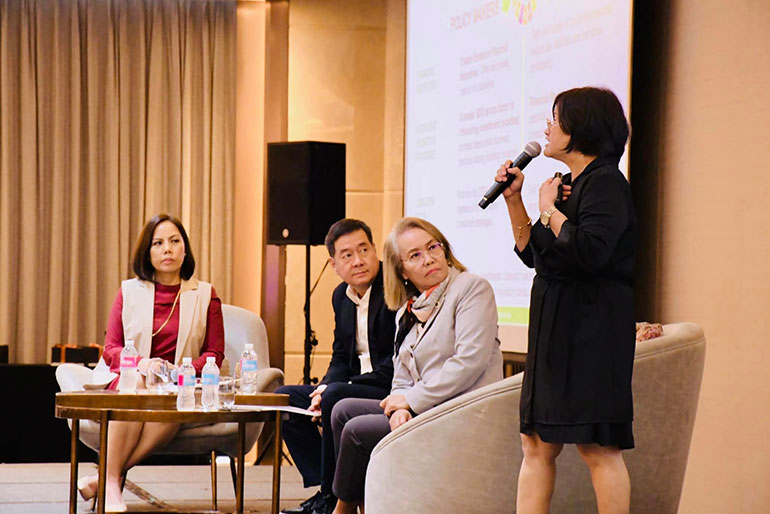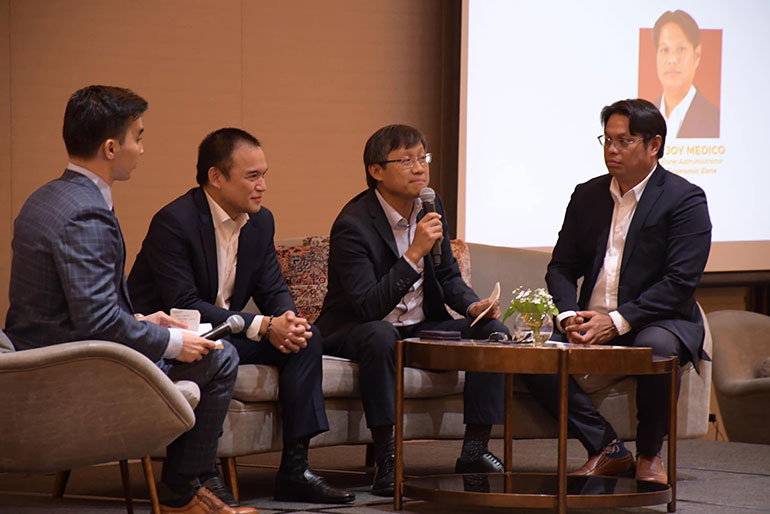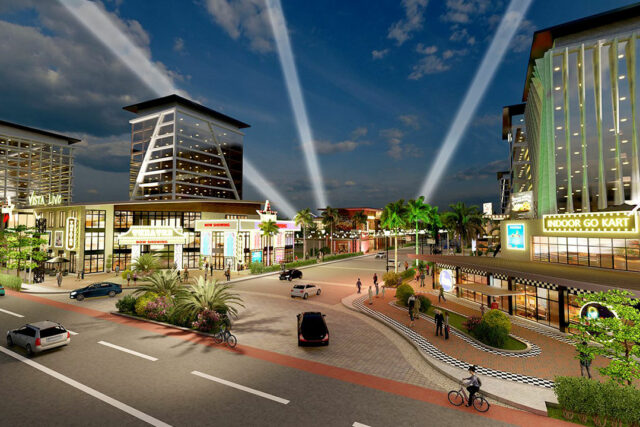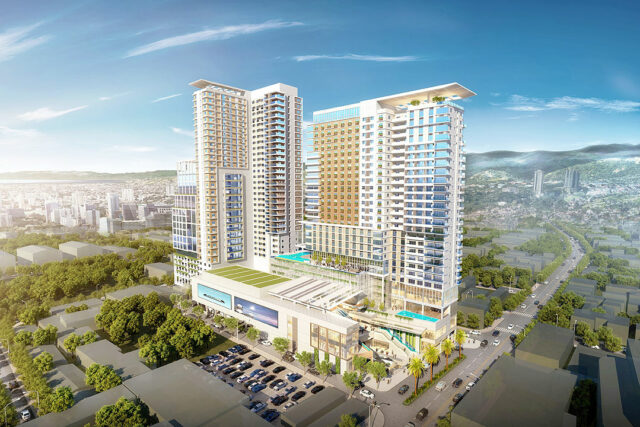Music tourism unlocks more opportunities for Philippine travel sector
By Justine Irish D. Tabile, Reporter
CAMILLE DELOS SANTOS, a 29-year-old government worker from Palawan province, spent P35,000 to watch the concert of K-pop boy band Seventeen in Bulacan north of the Philippine capital on Jan. 13.
“I had to save up not only for the concert ticket but also for the plane fare, transportation to the concert venue, accommodation and food,” she said in a Facebook Messenger chat.
The thought of going over budget caused her a lot of stress, she added.
 The local travel industry is experiencing a transformation with the rise of music tourism, which is reshaping how Filipino travelers plan their trips, with concerts and music festivals becoming central to their travel decisions.
The local travel industry is experiencing a transformation with the rise of music tourism, which is reshaping how Filipino travelers plan their trips, with concerts and music festivals becoming central to their travel decisions.
Korean acts like Seventeen, Blackpink, Enhypen and IU, and global sensations like Olivia Rodrigo and Ed Sheeran are driving the transformation of Philippine and global tourism.
The Philippine music event market is projected to hit $83.6 million this year and grow by 3.9% annually to $97.5 million by 2028, according to German online data platform Statista.
Much of the global revenue from music tourism this year will come from the United States at $17 billion.
Locally, the target market is about 2.9 million Filipinos, or a user penetration rate of 2.5%, compared with Denmark’s 25.8%, the highest in the world, Statista said.
Filipinos who travel overseas to watch concerts spend more than those who aren’t concertgoers, according to Visa. “In the Philippines, concertgoers, known for their higher disposable income, have a history of outspending non-concertgoers,” it said.
Most of them come from Metro Manila and spend much on international brand apparel and accessories, luxury retail and quick-service restaurants, Visa said. “Often, they spend double the amount compared with those who do not attend concerts.”
“Concertgoers, being more digitally connected and having more disposable income, are also more likely to shop online. This includes booking flights, shopping via platforms, department store purchases, food delivery and insurance in the Philippines,” it added.
Singapore-based online travel service provider Trip.com Group said there’s a growing demand for bundled travel packages, which include flights, accommodations and concert tickets.
Trip.com Managing Director and Vice-President for International Markets Boon Sian Chai said Taylor Swift’s six-day concert in Singapore led to an almost fourfold increase in hotel bookings.
He said the popularity of concerts among tourists, especially millennials, is a global trend. “It is a worldwide trend. It will be an initiative that we want to expand internationally, not just in the Philippines but in all the international points of sale because it is quite common across multiple races or nationalities,” he added.
HOTEL DEMAND
Peggy E. Angeles, executive vice-president at SM Hotels and Conventions Corp., said events have had a positive effect on hotels near SM Mall of Asia (MOA) in Pasay City.
“When there are concerts held in the arena or even in the open fields that we have in MOA, obviously, it creates demand for the hotels,” she told BusinessWorld. “It adds to the occupancy of the hotels especially at the weekends because that is when concerts are usually held.”
“Concerts actually end up very late,” she said. “So rather than go home, they spend the night at the hotels and party or have drinks, then go home the next morning.”
Benito C. Bengzon, Jr., executive director at Philippine Hotel Owners Association, said their members report full occupancy rates when there are concerts nearby. “And that’s why they have also identified concertgoers as a specific segment,” he told BusinessWorld.
“It is a good ecosystem because when you get more concerts, there are more concertgoers, and more concertgoers mean greater chances of them staying in nearby hotels,” he added.
Venue is important for hotels to benefit from concert events, Mr. Bengzon said.
Joanne De Leon, a 25-year-old accountant from Sto. Tomas, Batangas province, spent P15,000 for the Seventeen concert, which Ms. Delos Santos, mentioned at the outset, also attended.
She said she had a hard time getting to the Philippine Arena in Bulacan province, which is 86 kilometers away. “Since it was a carpool, we had to leave Batangas early to get to the venue,” she said in a Facebook Messenger chat. “It should have been easier for me if it was held at the MOA.”
Regina Rose Raz, a 26-year-old human resources director and part-time teacher from Calbayog City, Samar in central Philippines, had a similar experience.
Out of the five concerts she attended over several years, the ones held at the Philippine Arena were the hardest to get to.
“First, it is hard to secure transportation,” she said via Messenger chat. “Second, it is hard to secure accommodation because most of them are far from the venue. And third, it is not really friendly for concertgoers.”
TRAVEL BUNDLES
“I don’t know if the problem is with the event organizers or the venue itself, but in the two times I attended a concert at the Philippine Arena, I don’t recall a good experience before and after the event,” she added.
Florent Humeau, chief executive officer at Red Planet Hotels, said the company’s branch along Timog Avenue in Quezon City get bookings from concertgoers at the Philippine Arena.
“For hotels, more events and bigger concerts are better for us,” he said. “When there is an event, our hotel is usually full two weeks to three weeks in advance.”
SM’s Ms. Angeles said travel packages that include concert tickets would help patrons like Ms. Delos Santos, Ms. De Leon and Ms. Raz.
“If you are living in the province and the concerts are at the Philippine Arena, then you could have a bundle of the hotel and ticket, and maybe transportation, from a travel agency,” she said.
“It will definitely have a market here, and I think it’s more for millennials, because that is the same market that went to Japan or Singapore for the Taylor Swift concert,” she added.
Besides concerts, she said events like Disney on Ice, Marvel Universe and meet-and-greets of international artists are also among the drivers of hotel bookings.
“Events have come back,” Ms. Angeles said. “A lot of concerts that have been held. We’ve had international concerts and local concerts. We also have had not just concerts but even shows.”
“I think events have come back, and we could probably have more. And I’m sure more will come in a short while,” she added.
Fiona Pan, senior market director at Trip.com Philippines, said the company sees opportunities in targeting Filipino concertgoers with bundled packages.
“We have already formed partnerships with local entertainment companies and successfully sold tickets for events such as the popular Disney concerts last year,” she said.
“Our flight ticket business in the Philippines is experiencing strong momentum… and we have also expanded our local team to strengthen relationships with airlines and to explore more collaboration possibilities,” she told BusinessWorld via WhatsApp.
“As Trip.com expands its presence in the Philippines and covers more businesses and scenarios, there is definitely an opportunity to leverage our synergies and marketing capabilities to target Filipino concertgoers,” she added.
Ms. De Leon, the state worker from Palawan, said she would be on the lookout for travel concert packages in the future. “It would surely make life easier for me.”

















